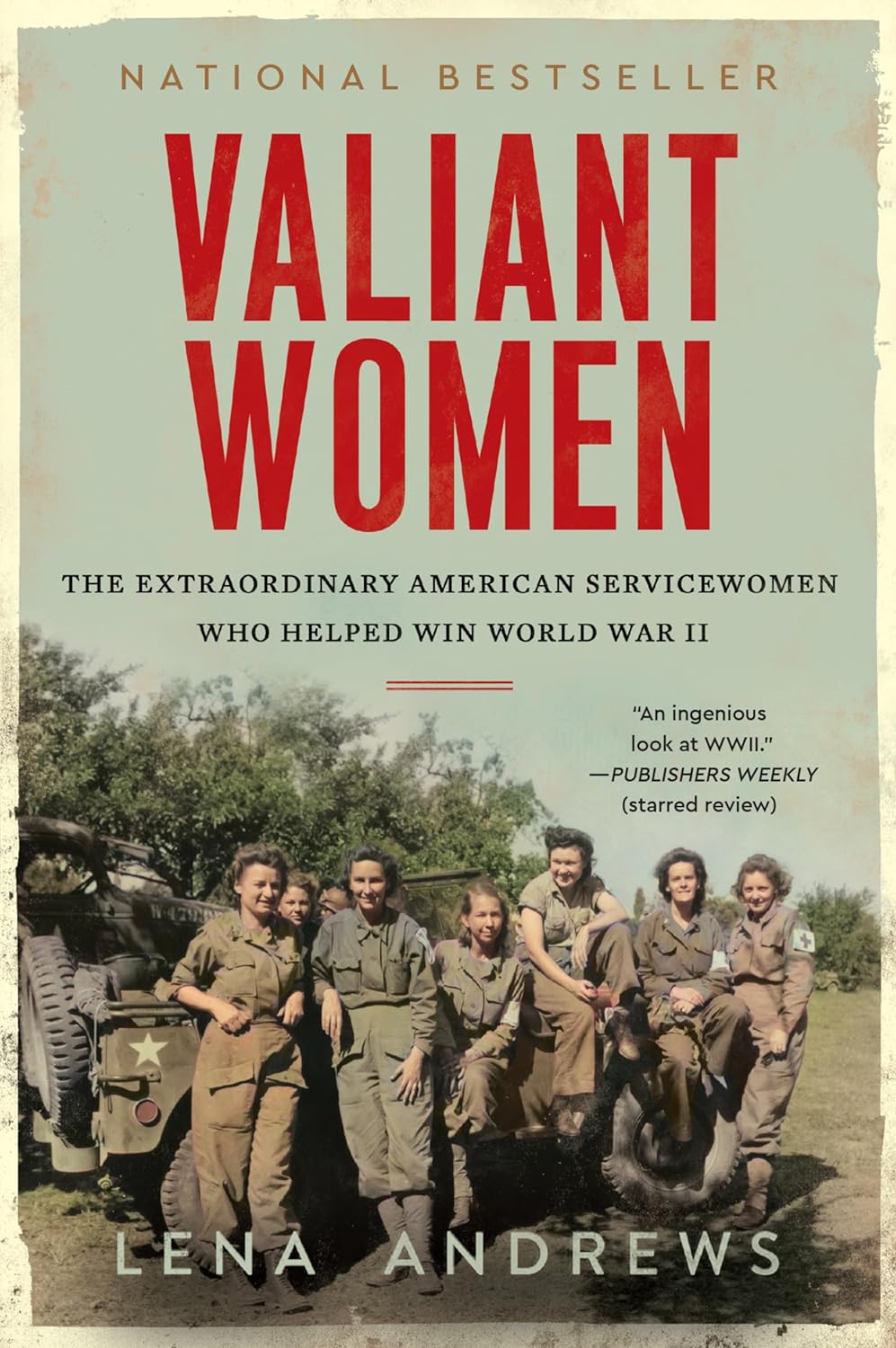Summary | Excerpt | Reviews | Beyond the Book | Readalikes | Genres & Themes | Author Bio

The Extraordinary American Servicewomen Who Helped Win World War II
by Lena S. AndrewsChapter 8
"THE ARMY AIR FORCES WANT YOU!"
WOMEN'S AIRFORCE SERVICE PILOTS
ON NOVEMBER 2, 1929, A GROUP OF TWENTY-SIX women sat assembled in a dark, musty aircraft hangar at Curtiss Field in Valley Stream, New York. It was loud and cold, with a persistent hum in the background, as Curtiss mechanics got to work repairing six-cylinder Challenger engines. The day had seen bad weather, so most of the women had arrived by train or car, bundled in winter furs and leather gloves, and were now passing around a tea cart that was actually just a kettle balanced precariously in a toolbox.
In a photo taken on the day of the meeting, most of the women were adorned with cloche hats, furs, and oxford pumps—all typical of the time. Some are looking in the direction of the camera, but others are turned away, clearly enjoying each other's company. Aside from the setting, the gathering could have easily been mistaken for a luncheon, except for the presence of one woman, off to the side and staring directly at the camera. Fresh off the flying line, outfitted in grease-stained coveralls, a flying cap, and goggles, clipboard in hand, she was clearly a pilot. And so were the women dressed in furs.
The photo depicted the inaugural meeting of what would become known as the Ninety-Nines—named for the number of its charter members—the small but growing organization of women pilots in the United States, whose goal was "good fellowship, jobs, and a central office and files on women in aviation." The Ninety-Nines had been founded in August 1929 after the first annual Powder Puff Derby, when nineteen women pilots took off from Santa Monica, California, and raced to the finish line in Cleveland, Ohio, just over a week later.
The Ninety-Nines sprouted from the growing sense of community among women pilots, who numbered just over one hundred at the group's founding. Although they were as fiercely competitive with each other as they were with the men, the women had an undeniably strong bond as the forerunners of women in aviation. Each of them was daring, fearless, and talented, and each recognized the same traits in their counterparts.
The inaugural class of the Ninety-Nines included several women who had become minor celebrities for their flying prowess, both in stunt flying and racing. The most famous at the time, and now, was Amelia Earhart, still years away from her final flight and the peak of her fame. Also in the group and only slightly less well known at the time, however, was Jacqueline Cochran, the brash, beautiful, and exceedingly talented wife of a self-made millionaire, who would soon be in charge of American women pilots during World War II.
Born Bessie Lee Pittman in Pensacola, Florida, in 1906, Cochran described herself as a refugee from Sawdust Road. "Until I was eight years old, I had no shoes," she would state years later, and "my bed was usually a pallet on the floor and sometimes just the floor. Food at best consisted of the barest essentials—sometimes nothing except what I foraged for myself in the woods or in the water of the nearby bayou." The details of Cochran's early life are sketchy, in part because she was known to fabricate or omit certain parts of her biography, but no one would contest the difficulty of her upbringing, which she remembered as "bleak and bitter and hard." At fourteen, Cochran had been married to a twenty-year-old salesman, and three months later she gave birth to a baby boy. Seven months after that, she left the boy and his father and moved to Montgomery, Alabama, where she worked alternately as a beautician and a nurse for several years, until returning home four years later when her son was killed in a fire. Two years after the tragedy, she and her husband divorced, and, with nothing left for her in the South, she bought a train ticket to New York.
By the start of World War II, Bessie Lee Pittman had changed her name to Jackie Cochran, met and married Floyd Odlum—a millionaire who had acquired his fortune buying up companies during the Great Depression—and started her own cosmetics brand. Observing her business's breakneck pace of growth, her husband had encouraged Cochran to get her flying license, joking it was a more efficient means of travel for a woman with her ambitions, and so she got it.
Excerpted from the book VALIANT WOMEN: The Extraordinary American Servicewomen Who Helped Win World War II by Lena Andrews. Copyright © 2023 by Lena Andrews. From Mariner Books, an imprint of HarperCollins Publishers. Reprinted by permission.
Your guide toexceptional books
BookBrowse seeks out and recommends the best in contemporary fiction and nonfiction—books that not only engage and entertain but also deepen our understanding of ourselves and the world around us.